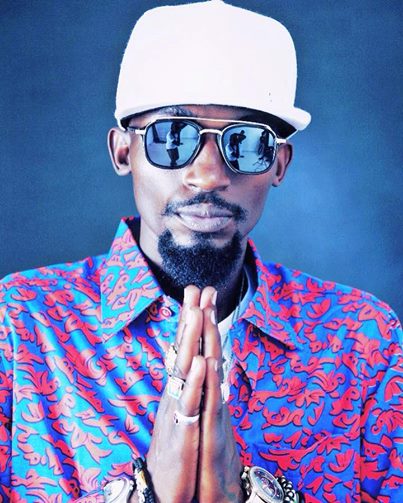There are common things artistes that used to be in Leone Island in the early 2000s will tell you; one of those, Chameleone being treated like a king and of course being a bully.
It was the peak of his career that he had endorsements with a beer company, telecom operator and was the constant name that featured on Uganda’s top two artistes.
In Leone Island, the camp he owned, Chameleone ensured they feel his influence, ordering artistes around like they were his errand boys and servants; but the common thing he apparently used to do whenever he came home was to ask whoever was around to remove his shoes.
“Nyambula…..,” he would say in his hoarse voice.
Unknown to him, Nyambula (Luganda for undress me) became his nickname among crew members like Douglas ‘Weasel’ Mayanja, Moses ‘Radio’ Sekibogo and Geoffrey ‘Chagga’ Kyagambidwa among others.
Thus, years later when Radio and Weasel hit the air waves with Nyambula, a song that seemed to bash a lover that had taken one of them through hell, they were not memorizing a bad relationship.
Instead, Radio was channelling all the things they had sacrificed for Nyambula (Chameleone) who had started fighting them.
The song was coming at the height of industry fights; Bebe Cool was fighting everyone while Chameleone was at it with Bobi Wine and Radio and Weasel, there were other groups that were fighting but they were easy to neglect, for instance Mega Dee and his former band mate Menton Kronno or Cindy and Blu3.
In fact, it was Bebe Cool, Chameleone and Bobi Wine’s fights that always churned hit songs, from Funtula, Nekolera Mmali, Okunsuna and Wendi among others, the three had patented beef in the industry.
But what made Radio’s Nyambula a different dimension of a beef song, was a fact that it was playful, funny and easily masqueraded as a love gone sour song…. then it became very popular, a very popular song not done by Chameleone, Bobi Wine or Bebe Cool at a time the three had barricaded the industry.
In fact, some music enthusiasts even credit the two boys for opening up the industry for the new generation.
Yet it was just the beginning, he would launch his powerful pen on the industry with Bread and Butter, a cheeky song that compared a loved one to bread and its butter icing.
The song became popular among the young for the catchy chorus, yet among the old, it was the poetry that came with simplicity and stupidity.
A line like “Olinga enkubba, etonya ekiro ku mabati…” (You’re like the rain that hits a roof in the night) got you imagining what was going on in the writer’s mind yet a continuing line of; “Olina omusango gw’okuwoza mukiroto lwaki wansoza…” (You have a case to answer, you insulted me in a dream) got you laughing.
This became his signature pen, a mix of creativity and funny, he would diss your favorite artiste, get you bitter but somehow got you nodding to the song.
With his ability to weave playful lyrics, the boys introduced a spin to beef as it was known in the industry – they never went bare knuckles but either romanticized it in a love gone bad situation or took it to church.
While mourning him, one of the fans noted that what made Radio’s lyrics addictive was a fact that they sounded easy and ordinary, in songs like I Love You, where he talks about having a long life like the tortoise of Mengo and staying together like Baganda and Mengo he would get you thinking that tortoise at Mengo probably lived longer than others world over.
Year in year out, the duo got Ugandans dancing with message songs and while at it, settling scores tactically, for instance, at the height of their war with Bebe Cool, Henry Ssali, then a proprietor of Ug Records says that the song Ability was mostly a free style where Radio seemed to be advising Rabadaba that he had the ability to become a big star and thus had to take the opportunity and sign for the label that wanted him.
By the time Radio passed on last week, it is said that he had gifted us with 250 songs – according to a former schoolmate, the artiste while in school was a tremendous writer, sketch artist and poet.
In a long tribute, Joseph Ssemutoke notes that it was Radio’s dream to one day get down and write a book…..
Sadly, that’s a side of him we are only going to read and hear other people talk about while we talk about the thousands of lines he inspired.































































